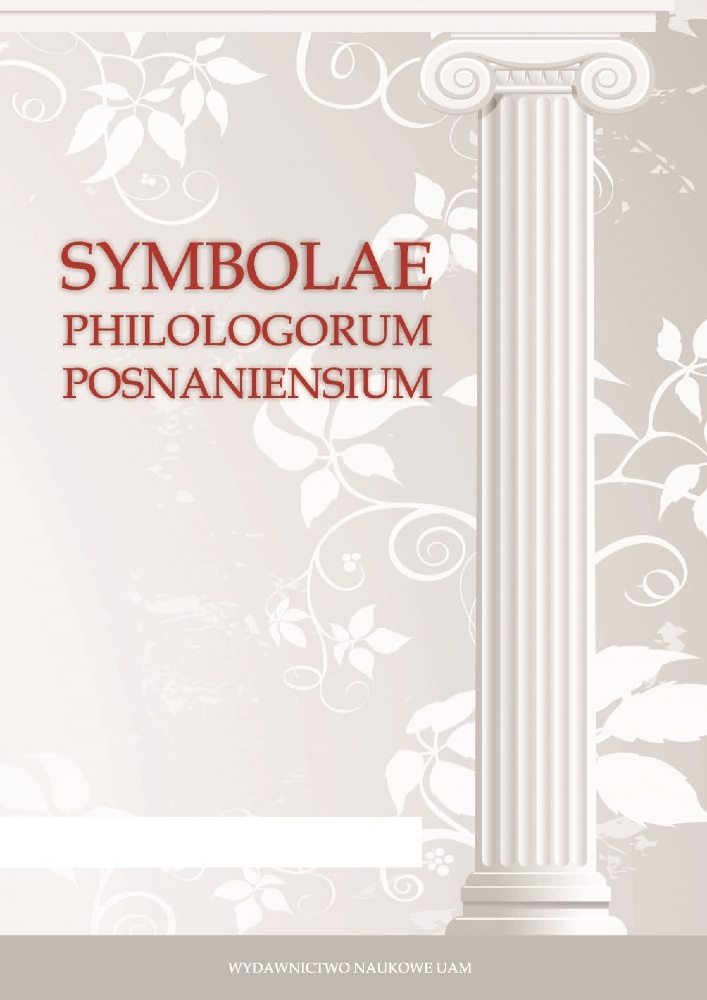Abstract
The work The Passing of Peregrinus by Lucian of Samosata presents a picture of a pseudo-philosopher , who under the disguise of Cynic asceticism and courageous death, hid such an extraordinary desire for fame and publicity that it took on a pathological size. This morbid craving for popularity that he acquired by any possible means finally brought Peregrinus to suicidal death, although, in fact, he did not really want it. What Lucian did not approve of his conduct was falseness, cheap theatrical claptrap, using human simplicity and warm-heartedness. Lucian damasks in a brutal way the unbound craving for publicity from which all actins of Peregrinus stemmed. By removing a tragic mask from his face Lucian pinpoints his ridiculousness and ugliness. It was the pursuit of popularity that brought Peregrinus to destruction. His self-immolation, however, was not viewed upon by Lucian as an act of heroism, but merely as a grotesque and miserable ending of an equally grotesque and deplorable life.
Downloads
Download data is not yet available.
